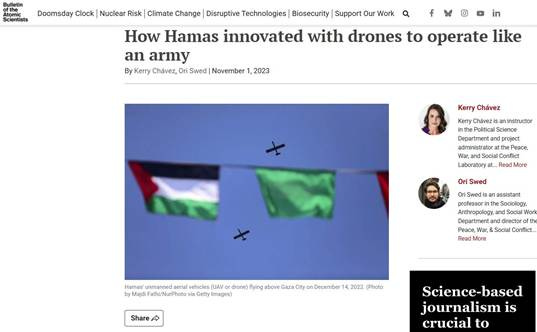The October Surprise
A significant change in Israel's security perception is essential for its survival
This guest post by WeissWord and was originally published on Weissword Substack.
All future stories written by Reuben Salsa (every Thursday, 8 am Auckland time) will be for paid subscribers only. Guest posts will remain free and posted every Sunday (8 am Auckland time).
For more articles by Jewish authors, subscribe to the JPF on Medium (click on the image below).
The October Surprise
“The purpose of war is to implement your government's decisions by force of arms” — Robert A. Heinlein
In the early 1950s, Israel's first Prime Minister, David Ben-Gurion, faced an existential challenge. How could a tiny nation, surrounded by hostile powers, ensure its survival? Israel was dramatically outmatched in territory, population, military personnel, weaponry, resources, and international support.
Ben-Gurion's solution was a three-pronged security doctrine that would define Israeli military thinking for generations: Deterrence - Israel would maintain overwhelming technological superiority, ensuring enemies would think twice before attacking. Early Warning - A robust intelligence apparatus would detect enemy intentions before they materialized, providing time to prepare or pre-empt. Decisive Victory - Israel would win quickly and decisively in any conflict, ensuring enemies understood that challenging Israel was a losing proposition.

The first major blow to Ben-Gurion's doctrine came on October 6, 1973—Yom Kippur, the holiest day in Judaism. Egypt and Syria launched a surprise attack, catching Israeli forces completely unprepared. Despite ultimately pushing back the invading forces, the war revealed critical vulnerabilities in the security doctrine: Arab adversaries were not deterred, despite previous Israeli victories, Israeli intelligence failed to provide early warning, The conflict did not end in a decisive Israeli victory, but rather in diplomatic arrangements.
The Egyptian and Syrian armies continued fighting until ceasefire agreements in January and May 1974, respectively.
But instead of fundamentally reassessing its security doctrine, Israel doubled down on technological superiority, intelligence gathering, and rapid response capabilities. The underlying assumptions remained unchallenged.
The digital revolution has fundamentally altered the nature of military advantage in ways that render Israel's traditional security doctrine increasingly obsolete. This shift represents perhaps the greatest unacknowledged threat to American military dominance as well.
Today, technological knowledge flows across borders with unprecedented ease. Breakthrough innovations in artificial intelligence, drone technology, cyber capabilities, and precision munitions don't remain exclusive for long. What once required massive national resources and decades of development can now be reverse engineered, adapted, and deployed by adversaries with far fewer resources in dramatically compressed timeframes.
Consider how technological superiority—once the exclusive domain of industrialized nations with advanced research capabilities—has been progressively democratized in our interconnected world.
This assumption is dangerously outdated.
For the United States, this trend should trigger alarm bells. If America were to engage militarily with China, it might painfully discover that its adversaries possess sophisticated capabilities to reverse-engineer and develop combat systems that fundamentally challenge even the most advanced American technologies. The unipolar moment of overwhelming American technological superiority is waning faster than most defence planners acknowledge.
The second pillar of Israel's security doctrine—early warning—has proven equally fragile. There is simply no system, regardless of how sophisticated, that can provide reliable advance warning of enemy intentions 100% of the time.
This model inevitably fails for numerous reasons: cognitive biases among analysts processing raw intelligence, effective deception operations by adversaries, organizational blind spots, and the fundamental challenge of distinguishing genuine signals from background noise.
The Israeli intelligence community's track record reveals a sobering pattern of critical misses: The intelligence gap regarding Saddam Hussein's weapons capabilities in 2003, The complete oversight of Muammar Gaddafi's advanced nuclear program in Libya, Syria's military intentions, focusing on ballistic missile development rather than a secret nuclear reactor in the Syrian desert, The failure to anticipate Hamas's offensive plans in 2014, The missed coordination between Hamas and Hezbollah in attacks against Israel in 2021, The failure to identify Hamas's advanced long-range rocket capabilities.
Each instance represents not merely an intelligence failure but a fundamental challenge to the doctrine that early warning can be consistently achieved through technical means and human sources.
The third pillar—decisive victory—has become increasingly elusive in modern conflict. Wars are no longer brief, decisive engagements but protracted struggles with complex political, economic, and social dimensions that military force alone cannot address.
The American military failed to achieve decisive victory in Vietnam, Iraq, and Afghanistan. The Russian military has failed to decisively defeat Ukrainian forces. The Israeli military has not decisively defeated Hezbollah or Hamas. This pattern is not coincidental but structural.
The principal reason is that conflict dynamics between adversaries inevitably lead to tactical and operational adaptations, defensive and offensive innovations that prolong fighting, even when one side possesses overwhelming military superiority—as the American military did in Vietnam or the Israeli military facing the PLO in Lebanon, Hezbollah, or Hamas.
In a groundbreaking paper that challenged conventional Israeli strategic thinking, "The Sea as Israel's Strategic Depth," Dr. Yuval Steinitz articulated Israel's geographic constraints with remarkable foresight. Since Israel no longer effectively controls the territories of Samaria and Judea (now under Palestinian Authority administration) and the Sinai Desert remains under Egyptian sovereignty, Israel's strategic waistline has become perilously narrow.
The mountain ranges in central Israel have reverted to foreign control as they were before the 1967 Six-Day War. This creates a scenario where Palestinian military forces could potentially capture air force bases—facilities from which Israel's fighter jets operate—potentially neutralizing Israel's most significant military asset for hours if not days. During the October 2023 Hamas offensive, plans existed for armed groups to reach nearby air force bases in southern Israel.
Given these constraints, Steinitz argued that Israel must develop naval capabilities that provide combat support and expand Israel's already narrow geographic footprint. Such naval forces could provide emergency assistance if air force bases were compromised.
However, because no coherent security doctrine has emerged since Ben-Gurion's era, the Israeli Air Force continues to receive disproportionate resource allocation at the expense of other military branches. The Israeli Navy remains particularly small and inconsequential—a reality starkly demonstrated during the recent Red Sea crisis.
The maritime routes to Israel in the Mediterranean present another strategic vulnerability that receives insufficient attention. Vessels must transit through potentially hostile waters, with Turkey—an ascending power with an impressive array of advanced military systems developing formidable naval capabilities—maintaining a significant presence in the region.
Meanwhile, Egypt continues its substantial military expansion, creating a situation where Israel's maritime lifelines could be threatened from multiple directions simultaneously. Israel's fundamental security challenges will not be resolved merely through substantial investment in naval capabilities or purchasing additional fighter jets. What's required is a paradigm shift in warfare doctrine itself.
The Coming Storm
Given that the current conflict has not dislodged decision-makers or yielded profound security sector reforms beyond large-scale weapons procurement, substantive discussions regarding Israel's strategic direction amid regional transformations remain insufficient. The Israeli government lacks clarity on its objectives and strategic vision—a persistent deficiency characterized by superficiality and postponement of fundamental problems.
Unless significant changes occur in how deliberations are conducted, decisions are made, and new teams capable of providing strategic insights for future years are established at the decision-making level, the next October surprise becomes not a question of if, but when—not fifty years hence, but in the foreseeable future.
And when it comes, will America's security establishment recognize the warning signs for its own doctrine, or will it too be caught in the comfortable assumptions of a world that no longer exists?









This is a very concerning document about the west’s current military capabilities and strategies against our enemies. We are vulnerable to surprise attacks. I fear one is coming soon inside US borders based on the number illegal immigrants who were allowed in under the Biden Administration.
This article mentions Israel’s defense plan needs to improve its naval capabilities, but does not mention their new submarine, the INS Drakon.
This will significantly improve their defense capabilities against major adversaries like Egypt and Iran.
https://www.nti.org/analysis/articles/israel-submarine-capabilities/#:~:text=Israel%20currently%20possesses%20five%20Dolphin,up%20to%2011%20meters%20deep.
I believe Israel should be improving on their intelligence and early warning. Considering Israel's small size and geographical location this is extremely important. They have shown the ability to locate enemy leaders quickly and eliminate them. Soldiers do not function well without leadership. Israel needs to put a razor's edge on intelligence and early warning (high tech). Israel has a super fine air force and they need to keep their dominance in the air. Finally, although the Arabs lag behind a bit, future war will be more and more high tech, digital, etc. The soldier on the ground will be replaced by a tech geek. Israel is known for their tech inventions and advancement. They need to develop their tech ability for war use.